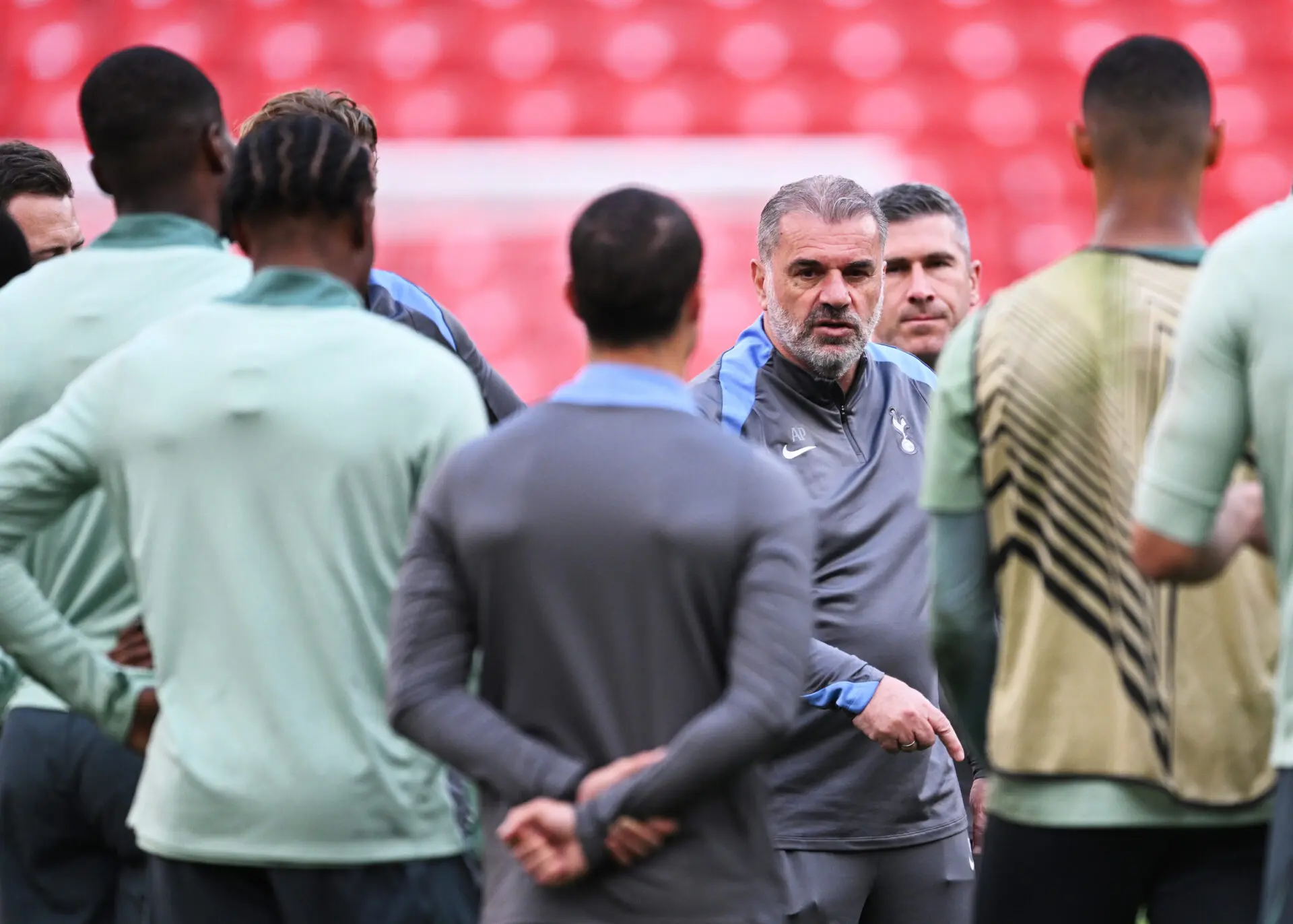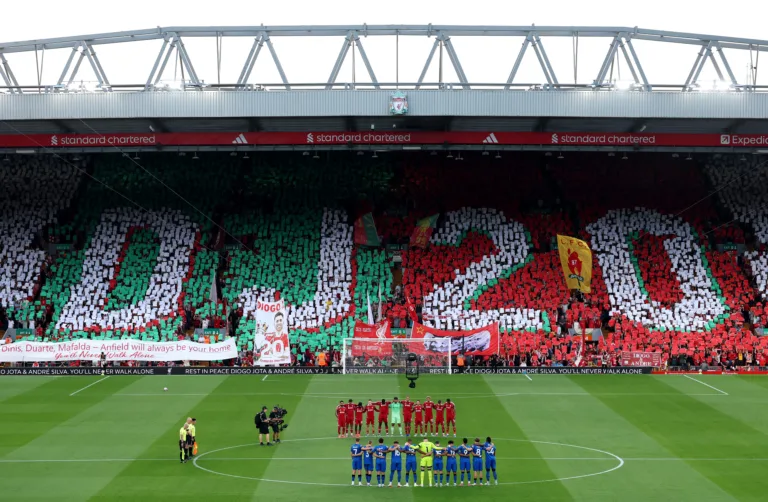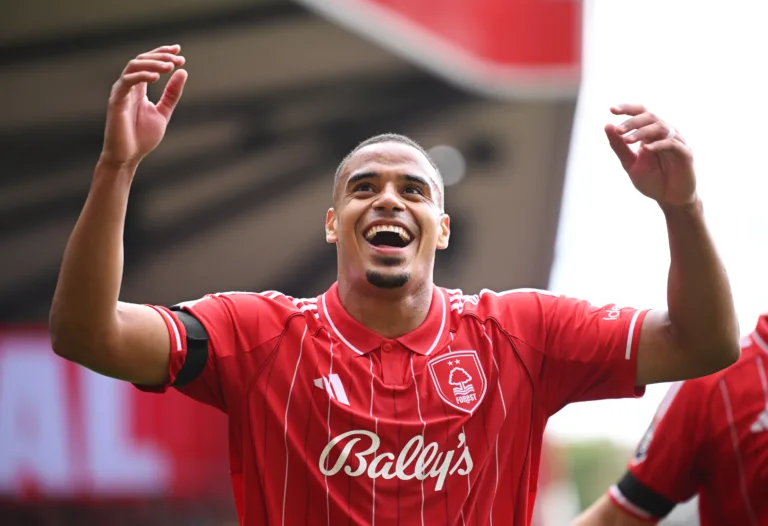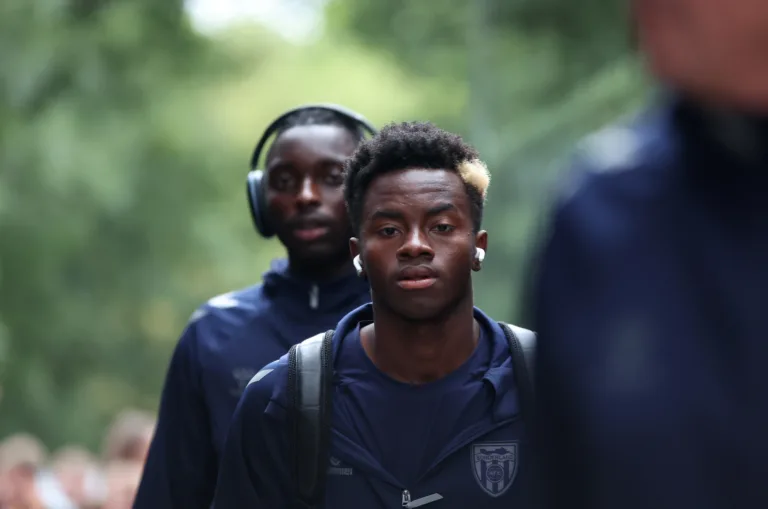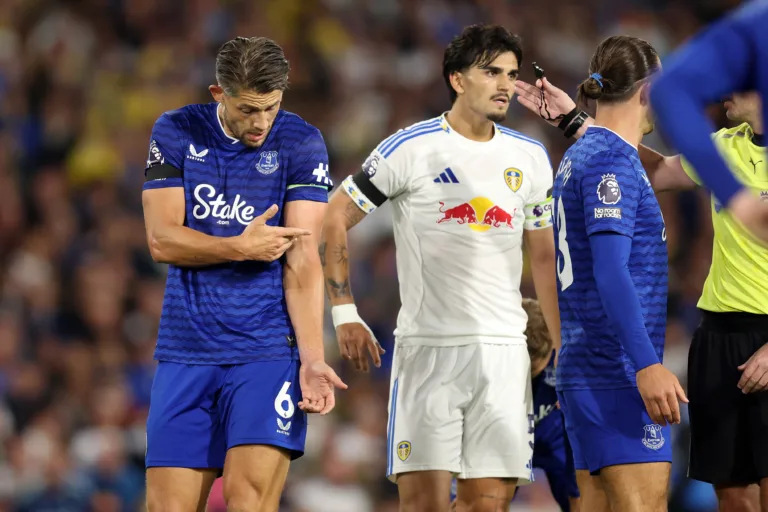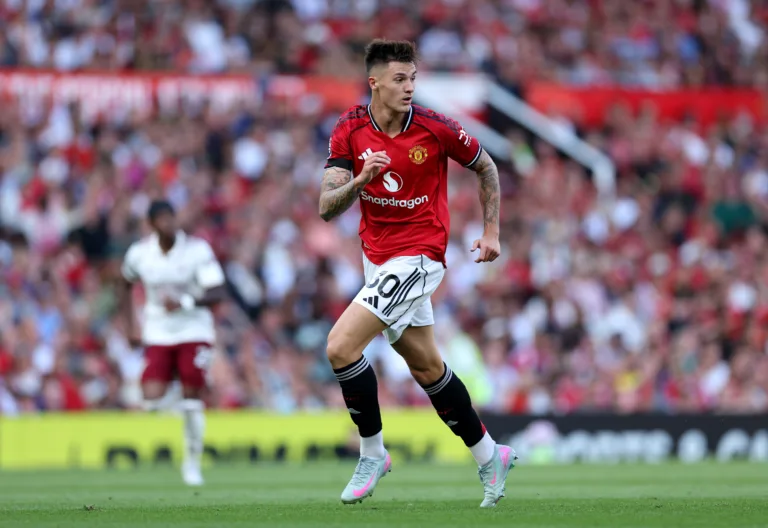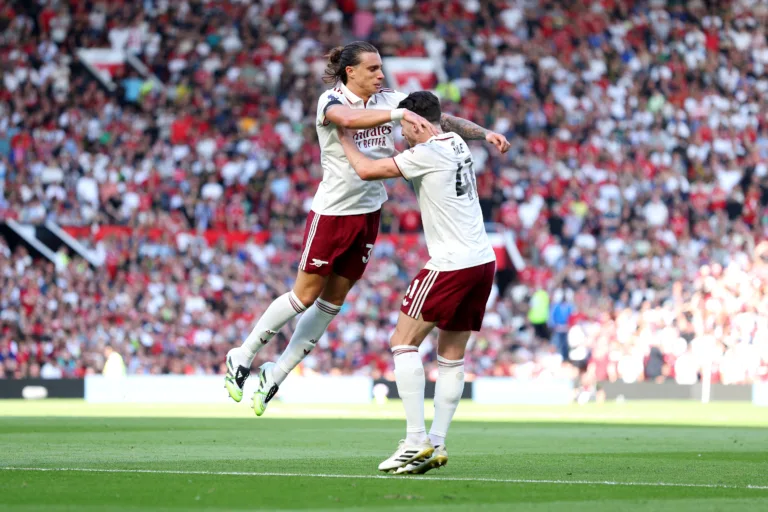“I Always Win Things in My Second Year”: Ange Postecoglou’s Claim That Will Become Legendary
Ange Postecoglou had just watched his Tottenham side fall 1–0 to Arsenal in a cagey north London derby. Cameras zoomed in on his weathered face in the post match press conference, not in defeat but defiance. Then came the quote, said almost under his breath in the post-match presser, but loaded with more intent than anything that had come before it:
“I always win things in my second year.”
It didn’t shake the walls at the time. Arsenal fans rolled their eyes. Spurs fans probably sighed given their lack of trophies over the last few years. The rest of us? We clocked it, sure, but most just moved on. Now though, as the Europa League final looms and Tottenham’s chances of salvation rest on a single match, that throwaway line might just become one of the coldest in football history.
And the kicker? He might still be sacked even if he wins it.
The Quote That No One Took Seriously… Yet
Let’s be honest, Ange Postecoglou wasn’t exactly delivering this from a position of strength when he said it. Spurs had just lost their second league game in a row and had only taken 4 points from their opening 4 matches. They were starting the season poorly after a summer of heavy recruitment. The fans were starting to get nervy about another season without silverware. His tactics, which had been hailed as bold and refreshing early in the season, were now being questioned for their openness and perceived naivety.
Yet there he was, shrugging off the noise, eyes fixed on a bigger picture.
Postecoglou has done this before. In fact, he’s made a bit of a habit out of it. At Brisbane Roar, he won back-to-back titles. At Yokohama F. Marinos, he lifted the J.League in his second full season. Celtic? Scottish Premiership and League Cup in year two.
It’s one thing to quietly believe in your project. It’s another to call your shot publicly while the knives are out.
How Bad Spurs’ Season Has Been: 17th Place
Tottenham’s 2024–25 campaign will go down as one of the club’s worst in memory. They’re likely to finish 17th in the Premier League, in a season where they have been fortunate that the 3 sides beneath them have been so poor, that they were never in real threat to going down. That final position wasn’t a late stumble either. The underlying numbers had been warning signs for months.
A porous defence, a toothless attack, and an alarming lack of consistency saw them register just 38 points from 37 games. For a club that had Champions League aspirations in August, hell even a surprise title charge, it was an astonishing collapse. Spurs conceded over 60 goals in the league, often being exposed in transition, a by-product of Postecoglou’s high defensive line and aggressive full-back positioning. Oddly enough in contrast, their goal difference is likely to finish positively.
Injuries have been relentless and brutal. Ange lost key creative outlets at pivotal moments. James Maddison, who started the season brightly, missed several key weeks due to recurring ankle issues. Dejan Kulusevski underwent knee surgery in May, and Timo Werner’s fitness was inconsistent throughout the second half of the campaign. Lucas Bergvall, tipped to bring youthful dynamism to midfield, missed the run-in due to a hamstring problem.
The absences created a revolving door in midfield, leaving Spurs with a patchwork core for most of the spring. Rather than adjusting his system to account for personnel losses, Postecoglou doubled down on his principles. It left the squad exposed and contributed to a run of 11 defeats in their last 14 league matches. Tottenham have played a makeshift defence for the majority of their season, with Archie Gray deputising for long periods in a position he had never played before.
Tottenham’s summer and winter recruitment failed to deliver on expectations. Kevin Danso, signed to bring composure and leadership to a leaky backline, struggled to adjust to the pace and tactical demands of English football. Mathys Tel, signed from Bayern with promise but little top-flight experience, looked overawed in high-pressure matches and ended the season with just two league goals.
Dominic Solanke’s summer arrival was meant to offer a physical presence up front, but he found himself isolated in a team lacking rhythm and confidence, and has been sidelined like much else of the side through injuries for large spells of the season. The broader issue was a lack of synergy, as the new arrivals often looked like individuals trying to solve collective problems, rather than part of a cohesive tactical vision.
Harry Kane’s departure to Bayern Munich wasn’t just the loss of goals, it was the loss of a focal point, a leader, and the tactical glue that held Spurs together. The club banked on collective growth and Son Heung-min rediscovering his scoring boots, but that bet didn’t pay off. Son looked like a player past his explosive prime, scoring only 7 league goals and often struggling to find the space he once thrived in. This has been Son’s worst output since he debut season in 2014–15, 10 years ago.
Without Kane’s gravity and link-up play, Spurs’ attack lacked structure and threat. Their expected goals numbers dwindled, particularly in the second half of the season with their second half of the season stats almost halving compared to the first half of the season. Matches that might previously have been ground out through Kane’s individual brilliance were now slipping away without a fight.
In truth, the psychological blow of losing their talisman was never truly addressed, on or off the pitch.
Spurs’ Internal Chaos Makes It Even Colder
What gives this quote its ice-cold edge isn’t just the bravado. It’s the backdrop.
Daniel Levy’s finger has never been far from the trigger. Ange was brought in as a cultural reset, a change of pace from the Mourinho-Conte axis of doom. But Tottenham have been here before, and the club’s executive patience tends to run thin the moment top-four dreams fade.
There’s talk of friction behind the scenes, a growing belief that Levy might already be looking elsewhere. You get the feeling that even if Postecoglou were to win the Europa League, it might not be enough to save him. That is what makes this story so absurd. So very Tottenham. Is the Spurs job a poisoned chalice?
To drop that kind of quote, to back it up, and then get shown the door anyway? That’s Shakespearean. It’s chilling.
It’s the kind of thing that earns cult status, especially at a club where hope and heartbreak are regular dance partners. It wouldn’t just underline the dysfunction at board level, it would immortalise Postecoglou in the most bizarre way possible, the manager who told everyone what would happen, delivered it in the unlikeliest of circumstances, and still got kicked out of the door. Not many get to be right and still lose. But if it plays out that way, Ange Postecoglou might own that story forever. At least Ange is getting the chance to win a trophy before being sacked, unlike Jose Mourinho, I guess.
Football History’s Coldest Quotes: Where Does Ange Rank?
Football has never been short on bravado. It’s a sport fuelled by ego, theatre, and the perfectly timed soundbite. José Mourinho walked into English football with a smirk and the now-immortal line, “I think I’m a special one,” and from that moment, the story wrote itself. Zlatan Ibrahimović once said, without blinking, that he couldn’t find a suitable house in Paris, so he bought a hotel. Kevin Keegan’s infamous “I would love it” rant may have been born out of pressure, but its raw passion turned it into a moment etched into Premier League folklore.
Most of these quotes exist in extremes, they’re either declarations made at the top of the mountain or unravellings at the edge of a cliff. Mourinho had just won the Champions League. Zlatan was already a serial winner. Keegan was cracking under the weight of a title race. They were moments of loud emotion, either brash confidence or total vulnerability.
What makes Ange Postecoglou’s line so different is how quiet it was. No chest-puffing, no headlines demanded, no speech written for effect. Just a low-key remark after a 1–0 defeat to Arsenal, during a run of form that had fans questioning if he’d even see out the season. “I always win things in my second year.” It wasn’t a plea or a prediction. It sounded more like a reminder to himself. And that’s what makes it cold.
Because if he does end up winning the Europa League, after all the chaos, the injuries, the tactical criticism, the boardroom whispers, the 17th-place finish, being called a clown, that line doesn’t just become true. It becomes folklore. It becomes the sort of quote that lives on not because of how loud it was when it landed, but because of how perfectly it aged.
In a sport that thrives on noise, Ange might just have dropped the coldest line of them all or the most embarrassing. That is how fine the lines are.
What If He’s Sacked Anyway?
It sounds ridiculous on paper, but with Tottenham, it’s almost believable. A manager who came in with conviction, tried to drag the club out of its rinse-and-repeat cycle, implemented a bold philosophy, suffered through a car crash of a league season, yet still guided them to their first European trophy in over four decades, and then got the boot. If it plays out like that, the narrative writes itself.
This wasn’t just any manager muddling through. Ange arrived with clarity and stuck to his principles, even when they were fraying at the seams. The high line. The midfield overloads. The aggressive press. He refused to bend, even when the injuries piled up and results tanked. He didn’t cave to media pressure or fans calling for pragmatism. Now whether with hindsight that was a good thing or not, that is left for you to decide.
Before the Europa League final, when questioned about his methods and his future, he snapped, “I’m not a clown.” After journalist Dan Kilpatrick had referred to him as one in a previous article. Clearly this season has been tough for Ange on a mental level.
“I’ve said before, the narrative around the club is not positive at all, whether you follow the club or not, there’s always some sort of negative connotations to everything that happens at the club, but that’s existed for a very long time – you need to break through that.”
Postecoglou bemoans ‘negative narrative’ around Spurs
So if he does win it, and Levy still pulls the trigger, that quote “I always win things in my second year” becomes something else entirely. It’s no longer a bit of bravado. It’s the defining soundbite of a man who knew he’d be right and probably knew it wouldn’t matter. It’ll be repeated in group chats, on message boards, and in pub debates every time a club acts too fast. It becomes a warning label for impatient owners. It gets carved into Spurs forums in bold font, turned into T-shirts, Tiktok edits made and made and made, and don’t forget the pinned tweets. And it becomes ammunition for every under-fire manager who just needs more time, especially at a club like Spurs.
You can already picture the think pieces. Why didn’t Spurs back Ange after he literally told you this would happen? Why do clubs fear ideas more than failure? If he’s sacked after delivering a European trophy, he won’t just walk away with a winners’ medal. He walks away vindicated. That’s the kind of ending that sticks in the throat. Because if there’s one thing football loves more than drama, it’s a man who tells you exactly what’s coming and then delivers, while everyone else fumbles for a reaction. But, you know, maybe they would have been right to do it anyway, but they’ll never know.
The Last Word on Ange Postecoglou’s Second Year Line
Whatever happens now, Ange Postecoglou’s “I always win things in my second year” is going to live on in football chat for years. It’s one of those lines that’s destined to get dragged out again and again, to laud or to laugh at, depending on the mood. And much like Sir Alex Ferguson’s infamous “Lads, it’s Spurs,” it’ll come to mean more than just the words. It’ll become shorthand for something bigger.
If Postecoglou pulls it off and wins the Europa League, the quote turns mythical. The quiet belief in the middle of a mess. The bloke who called his shot while sitting in 17th. People will say he never lost the dressing room, never lost faith, never blinked. It’ll go up on the wall at Hotspur Way, get referenced every time a manager’s under pressure, and probably even find its way onto a scarf or two.
But if it all goes wrong, if Spurs lose the final, if Ange walks or gets the sack, the quote sticks around all the same. It becomes a punchline. The kind of thing rival fans mutter with a grin. A reminder that saying it and doing it aren’t always the same thing. It’ll live on like “Lads, it’s Spurs,” not because it was right, but because it summed up an era, a feeling, a moment in time.
That’s the thing about lines like this. They don’t need context to be iconic. They just need to be memorable. And Postecoglou’s is already halfway there. For the right or the wrong reason? We’ll find out after the final.


